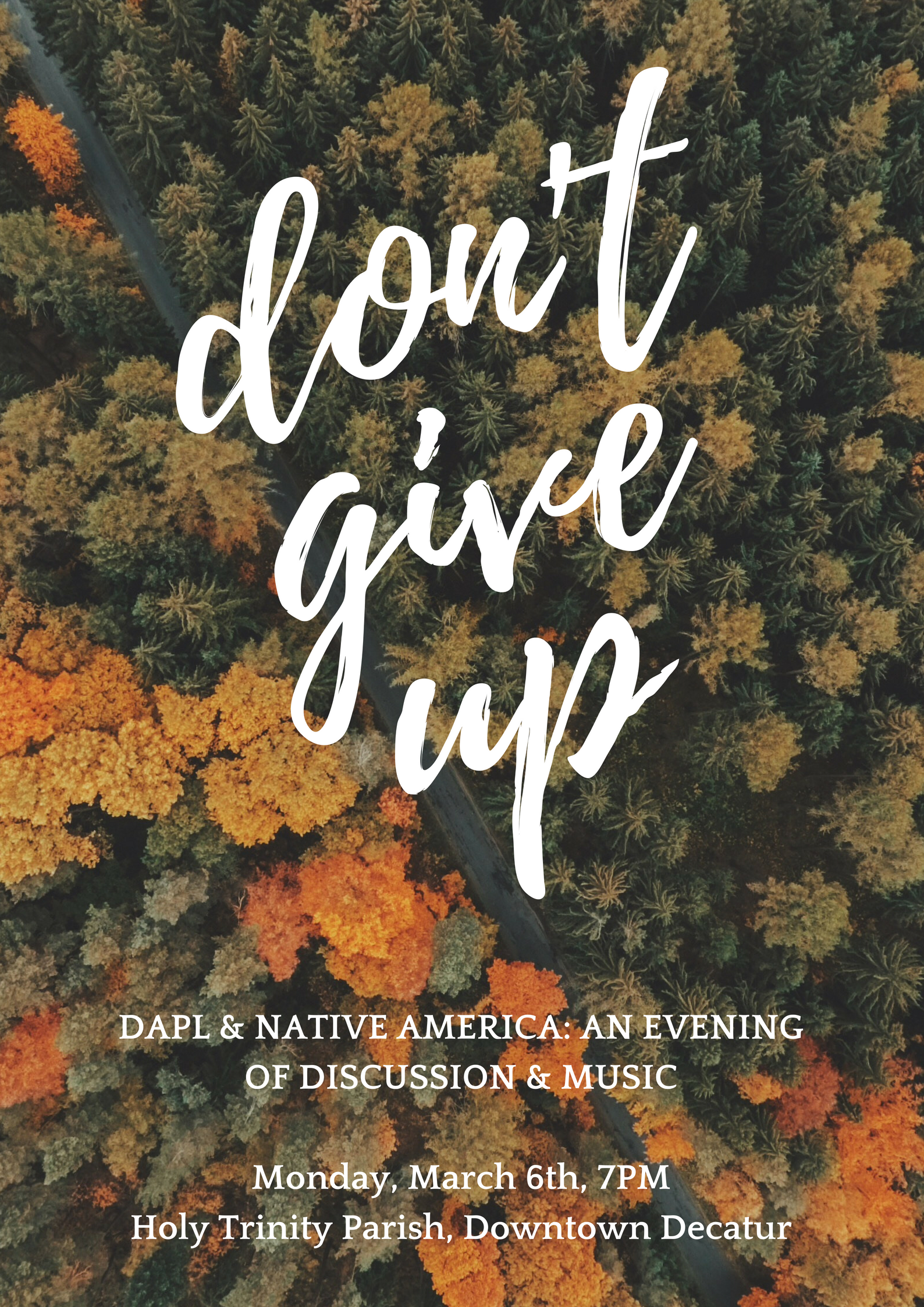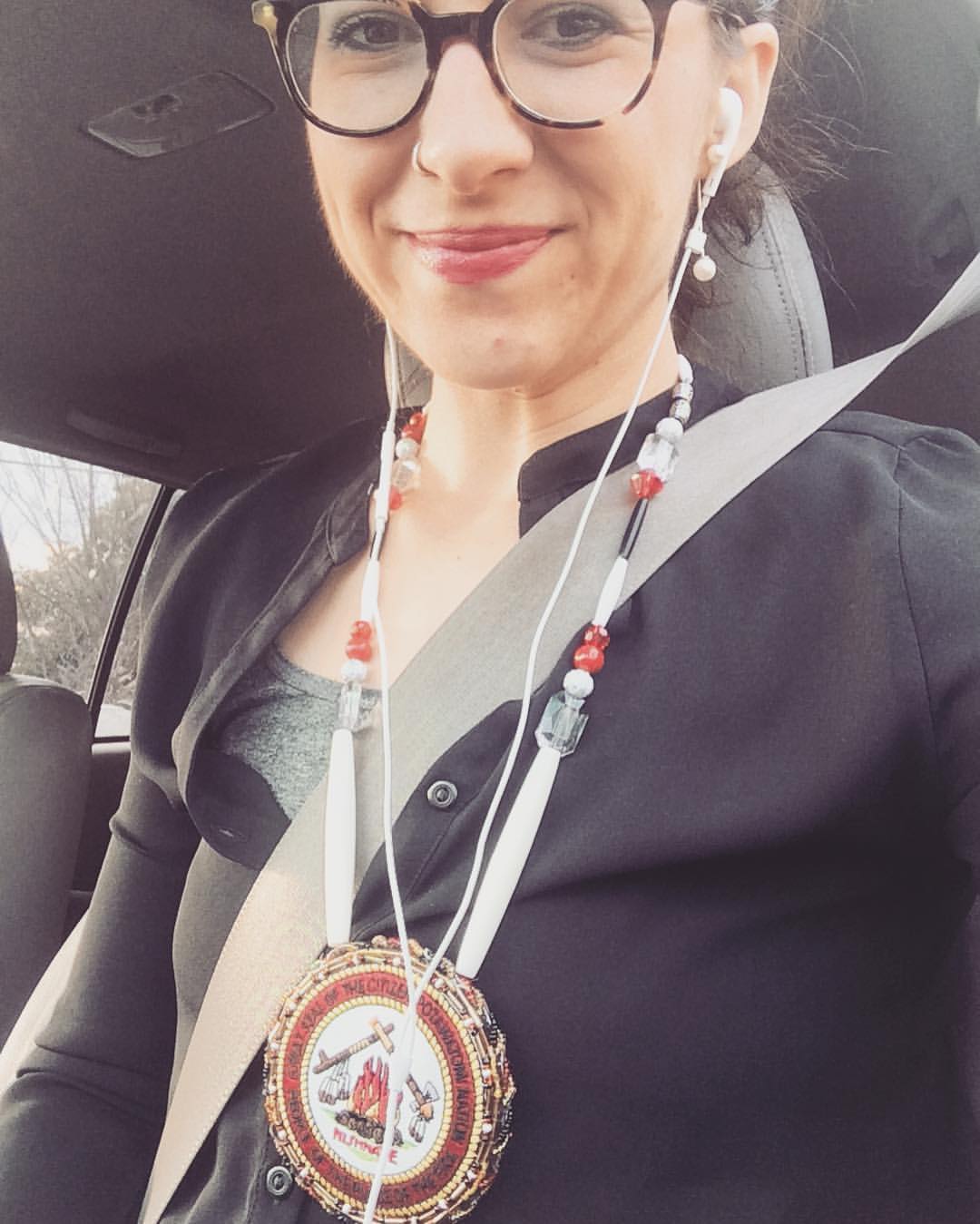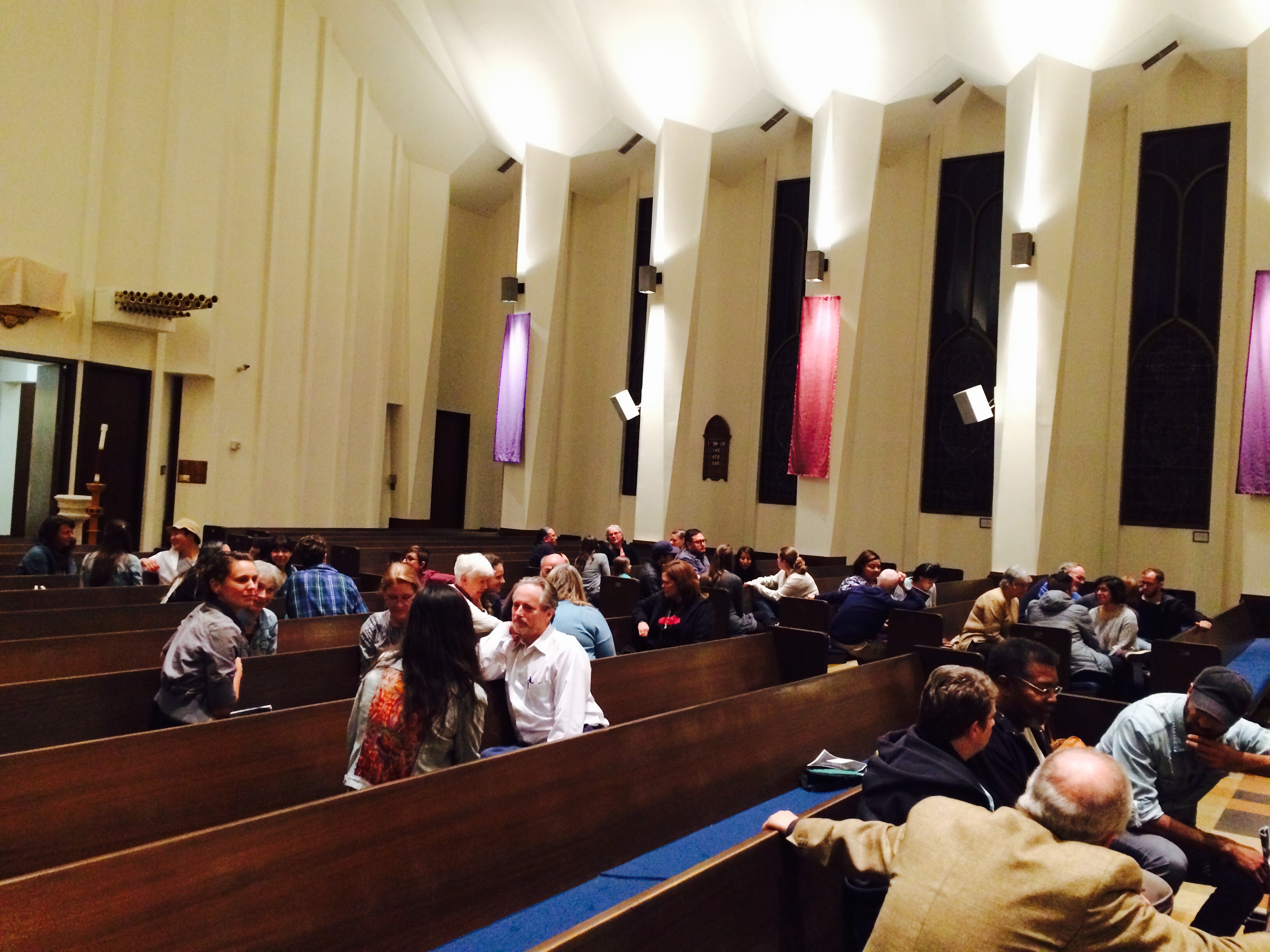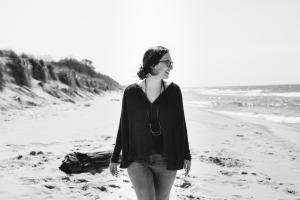
When I began my blog five years ago, I named it Stories because I needed a space to tell mine, and a space that might encourage others to tell theirs as well.
Many things in my life have changed in these last five years, but the reality that storytelling is necessary in our world hasn’t.
In fact, that necessity has become increasingly more clear.
On March 6th, I hosted an event in my city called DAPL & NATIVE AMERICA: AN EVENING OF DISCUSSION & MUSIC. We gathered at a church that I’ve only been in a few times, an episcopal parish that invited me to take part in an event last November that was a celebration of the earth and a lament that we have not taken care of her.
At that time, things in Standing Rock were particularly heavy, and so in the deepest parts of my heart, I was processing what it means to be a Potawatomi woman in today’s America. So I remembered this church and their support of me as an indigenous person, and I asked them to host my event on March 6th.
I gathered a few speakers, native and non-native, to share their stories, to discuss what it means to care for the earth and take an active role in the community and the world.
For months, I had this event on my calendar, and for the most part, I was ready for it. I was ready to hear the stories of my new friends, who had been to Standing Rock and had things to say about Native America, pipelines and oil, and the treatment of indigenous people.
I wanted a space in which people could listen and learn and have a chance to respond, to bring their own ideas and share their own journey.
For the past five years, I’ve been a sort of public story-teller, and every time I hear another person say to me, “I’ve never been able to tell my story like that,” I know why it’s necessary.
The evening of March 6th was about storytelling, but in a way that I wasn’t at all expecting. It was about my story and my friend Beth’s story, but it became the story of every person in the room: we are called to be good, to be kind, to care for one another and to care for this planet that we call home.
That was it. The simplicity of it astounded me, and the longer we lingered in that space, the more I realized that all of this is about Standing Rock, and it’s about so much more than Standing Rock. It’s about native peoples, and it’s about so much more than just nativeness.
It’s about our identity as human beings, about giving each other the space to share who and where we come from, who we are now, and who we one day hope to be.
A few of the speakers for the event weren’t able to make it, so I struggled with the fear that I’d disappoint my guests, having not been to Standing Rock to share that piece of the evening. If I advertised an event meant to “educate and empower,” was my story enough to do that?
That evening before the event, I posted a picture of myself in my car, sitting in the drive-thru at Chic-Fil-A.

“I’m ready for this. I think. If you’re the praying type, send one around for me tonight as I speak to a few people about #nodapl,creation care and #nativeamerica ,” I wrote to my social media family on Instagram and Facebook. People began to respond, “We’re praying; you’ve got this; hugs and prayers my sweet, strong friend.”
I carried their words with me into the empty church nave. I carried their words with me into a space filled up with over forty people. I carried their prayers into my own journey.
“Tonight, I want to begin by telling you some of my story,” I began.
“I am a tribal member of the Potawatomi Citizen Band from Oklahoma. I was born in ADA, the capital of the Chickasaw nation, in an Indian hospital. I grew up moving between Oklahoma and New Mexico, where we lived on reservations. My father worked for the Bureau of Indian Affairs until I was nine years old.
At that time, my parents divorced, and I found myself spending my teenage years in a mostly white, southern Missouri town. Much of the native culture I’d spent my childhood in was a distant memory by the time I graduated high school.
Now, as an adult, I’m asking a lot of questions of my memories and my past. I’m looking backward, to remember, wondering what I’ve missed all these years and how I can step back into my native culture again. It is important that who I am as a Potawatomi woman be found as I look back and as I look ahead. The more I seek my own identity, it leads me to things like caring for the earth, living a simple life, learning my native language, and practicing native culture with my two young boys.
Because this has been a pretty new part of my journey, the events at Standing Rock brought an awareness to my life that I belong to a family of native peoples, and that it is my duty to create environments in which I can share my own story and the story of other indigenous people in hopes that we all begin to learn the true history of America and the treatment of native people, even today.
Tonight is not only for my own story, but yours, too. What happens in our world today is that we neglect the power of communication, of shared stories. What happened in your childhood that matters to who you are today? Who were your ancestors and what do they teach you about the person you want to become?
Tonight we focus on Native America, what we call Turtle Island. We focus on care for the earth, the danger of fossil fuels and pipelines, why native people fight them and why non-native people fight as well.
I’ve not been to Standing Rock, but we see the pattern of colonial struggle that native peoples have prayed against for years—to take a stand for mother earth and our place here. We honor the water because water is literally life to us, and as a woman, I am to care for the water. I tend to the earth with my hands, I plant seeds and I recycle, I learn my tribe’s language, and I do what I can to make sure I care for what I’ve been so graciously given.
And it’s not only native peoples who have felt this way, and that is why I am so thankful you’re all here. I am so grateful to my indigenous brothers and sisters who are here tonight, and I’m grateful to those of you who are non-natives allies. You give me hope to continue to tell my story. You give me hope to hear your story and to decide where we go from here.
Tonight is about who we are as individuals, and about what we are capable of TOGETHER.
This is the beginning of something, not the end, just as Standing Rock was another beginning, and is not over. All over the country there are people coming together to stand up for clean water, clean air, living environments that are respected and cared for.
The Dakota Access Pipeline set the stage for something to happen that the whole world became a part of. We as native peoples have been pushing and praying and speaking for a long time, but this movement of native and non-native peoples coming together was something so sacred for the world to see, and it’s changing things. My hope is that it continues to spur conversations, that it allows us to break up some of the lies that have been told about native americans and native communities for so long. So I ask that as you go from here, you learn more. You investigate and ask questions, you dig and re-evaluate the things you were taught as a child, you engage cultures that are different than yours. We have a chance to change things, even within our faith communities, to build together and partner with indigenous peoples.
I’m here as native American woman to build this world into a better place with each of you.
I pray that this is the beginning of many conversations. I dream that more spaces like this bubble up all over our city, our country, and our world, and I believe they are. It is what we can do with our power, with our power as people, our power as citizens.”
The rest of the evening was full of singing and sharing. Because two of my speakers couldn’t make it, I opened up the mic for anyone who wanted to share. We sat quietly for a few seconds while the first person gathered their courage to walk forward and speak. She shared a song she’d written for Standing Rock, while her daughter stood behind and looked up at the mother who’d brought her to the event.
My friend Julia shared her desire to cut herself off from investments that support pipelines.
Jonathan shared his experiences as a Navajo man. With tears in my eyes, I listened as he asked what it means to live in a good way, as our ancestors would want us to. We live for simple moments, we are good to each other, we care for each other– this is the native way, he said.
Another woman talked about the division she faces in her own skin, and the difficult task of loving her Creole self and her native self in a way that honors both parts of her heritage.
Each of us, inside of our own skin, empathized with each of those stories. Each of us asked in those moments who we are, why we were there, what these issues have to do with us.

I should have known then that things would happen this way– so organically. I should have seen it when we split into groups and people shared for nearly twenty minutes who they were and why they’d come.
I should have known when I saw the quiet faces watching me tell my story, every now and then with an approving nod in my direction.
I should have known that these people would be ready, without judgment, to care for one another’s journeys.
What I’d hoped for the evening was so different from what actually transpired, and I wouldn’t have wanted it any other way.
At the end of the night, I sang Wade in the Water and an original song that I felt I needed to share with everyone. I described how I’d first found Wade in the Water through a project in sixth grade I’d done on Sojourner Truth, how I fell in love with the song then, and how I’d rediscovered in as an adult.
To end the evening, I said, “I just want you to know that I am okay with spontaneity, and this was perfect! Thank you!” We all laughed and applauded the night in all its rawness, in all its humanity.
Can I describe in words to you what it’s like to gather in a room with people of all different races and say to each other that we are the same?
One of the most powerful ways this can happen is through storytelling, through a judgment free empathy for one another, for the places we’ve been and the hope we hold for ourselves, hope that beats in the hearts in our chests, hope that carries us from one day to the next, no matter who our people are.
We experienced that, and when the night was over, I decided that I will continue to tell my story and invite others to tell theirs. We will continue to gather to listen to one another, to open up the microphone so that someone can come forward and say, “This is who I am and this is who I one day hope to be. Let’s journey together.” This event may have been about DAPL & NATIVE AMERICA, but it was about so much more.
It was about the opportunity to express what it means to be human, to connect to others, to recognize that no matter who our ancestors were, today we have the chance to be good to each other, to make what is wrong right, to use our activism wisely.
It is why I have hope for today’s America. It is why I have hope for my people. It is why I have hope for my own community and the world that my children will one day make their own way in.
We have hope because we have stories.
No one can take those away from us.















